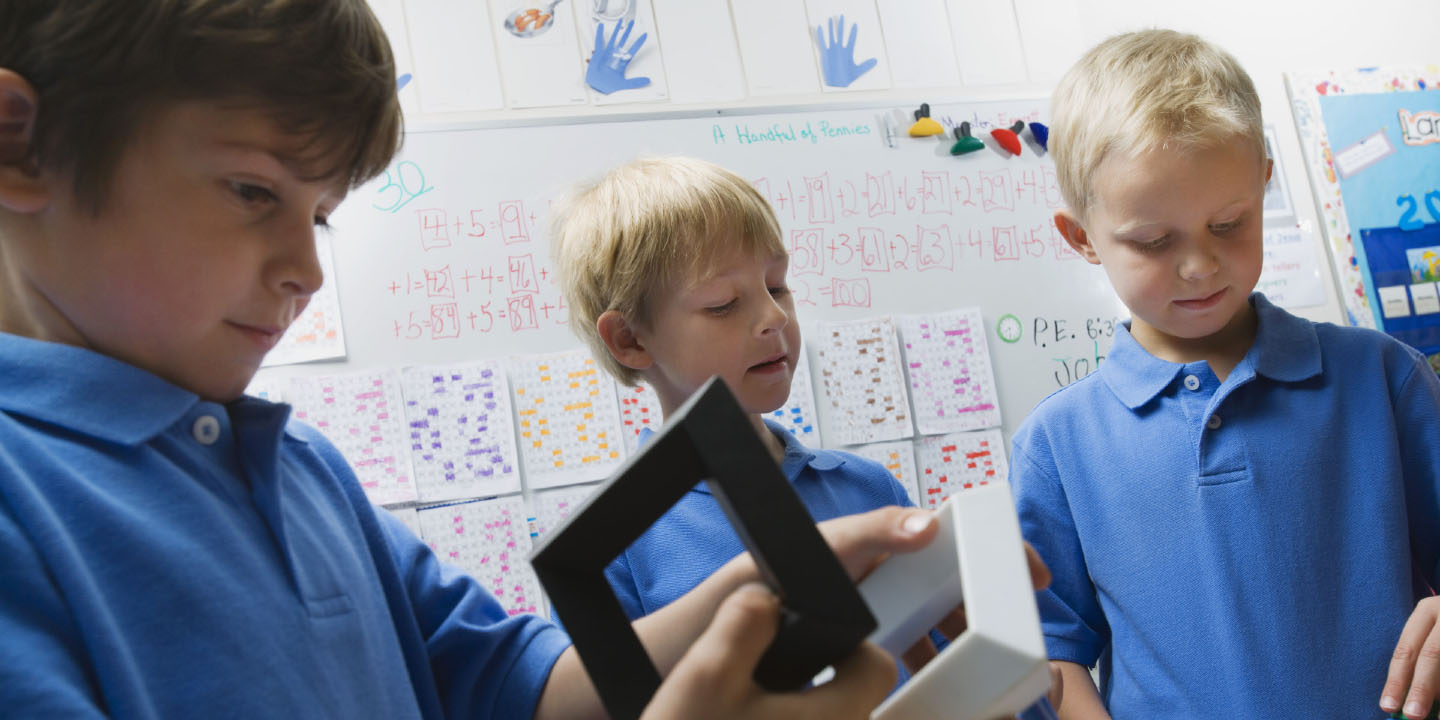
Inquiry and play transform school learning environment
Research 19 Mar 2021 7 minute readImprovements at a Tasmanian school have resulted in an 80 per cent decrease in student behaviour requiring support from senior staff members between 2018-2020.
In a recent podcast by Teacher magazine, Principal Elizabeth Humphries and Assistant Principal Nicole Wilson from East Derwent Primary School (EDPS) in Tasmania share how they transformed the school learning environment for their students and teachers through inquiry and play.
Since 2018, EDPS has been on a journey of school improvement which has seen significant positive changes in student behaviour and engagement, staff retention, teacher welfare and conditions for learning. In the podcast, Ms Humphries and Ms Wilson discuss the steps they have taken which have resulted in suspensions at the school decreasing by 75 per cent and fewer staff members leaving the school.
East Derwent Primary School is an urban primary school located on the outskirts of Hobart. It has a high proportion of social housing in the area and 87 per cent of families with children attending the school are within the bottom income quartile. This means that many students begin their education facing significant challenges.
According to Ms Humphries, EDPS is classified as a ‘difficult-to-staff' school and as it is the first appointment for most of the teaching staff, it can be quite daunting. Mentoring, collegial support and a positive school culture are key to helping them find their feet.
Ms Humphries says that before 2018, ‘the focus of every day was safety and behaviour. I think it's probably fair to say that staff were exhausted from managing the day-to-day grind of high-level behaviour and staff usually transferred from the school as soon as they were eligible to do so.’
There was a turnover of approximately one-third of staff and the introduction of a brand new leadership team at the beginning of 2018. It was clear that the culture, expectations and pedagogy needed a significant shift and that a new team presented a great opportunity to make substantial changes. The vision was to have a whole of school commitment to student success and for classrooms to be student-centred and responsive to needs.
Ms Humphries says, ‘we drew a line in the sand around violence because the school needed to be a safe place for everyone and safety was absolutely not negotiable. And we then focused on addressing the needs of teachers by building their own knowledge and skills of inquiry cycles, differentiation and effective pedagogy.’
They found that when students experienced success, their engagement and sense of belonging rose and that there was an instant decrease in behavioural issues, including suspensions. EDPS now expects high standards in student behaviour and achievement, underpinned by the belief that they are capable and competent learners.
The Refocus Teaching and Learning (RTL) initiative in Tasmania played a fundamental role in the improvements at EDPS. The purpose of the initiative was to strengthen pedagogy in the early years through improvement focused inquiry cycles. Key to the initiative was a commitment to professional learning communities engaged in ongoing research, action and reflection, and a belief that children are capable and competent learners. Throughout the teaching and learning process, teachers are encouraged to consider how a learning environment rich in play and inquiry can support learning in relation to the curriculum.
Finding the use of inquiry particularly successful in the K-2 classrooms, EDPS extended it to a whole of school approach. Now, all staff are involved in Commitment to Learning teams, who engage in ongoing cycles of professional inquiry and the use of playful pedagogies in the classroom.
A powerful example of the impact of the program has been work by the Kindergarten teachers on an inquiry into letters and sounds. The students were immersed in oral language experiences and hands-on learning with their understanding assessed before and after. They found that prior to this approach 62 per cent of students were unable to recognise a letter as a symbol or identify its name or sound. After the inquiry, 85 per cent of students were able to identify the letter with either its name or sound, or to recognise it as a symbol that carries a message.
EDPS is currently working with ACER to understand the impacts of this pedagogical change on student learning. While there is evidence that the program is having a positive impact on the school culture and learning environment, the school has identified the next step in their improvement journey is to gather evidence that will help them measure student growth.
‘It has been so inspiring to hear about the transformation this school has gone through, and their passion and commitment to improving learning within their school community,’ says Dr Amy Berry, Research Fellow in ACER's Education and Development program.
‘The use of inquiry to guide both professional learning and student learning has contributed to a growing culture of learning within the school. I’m looking forward to joining their journey as we empower the staff to evaluate the impact they are having on student engagement and learning.’
Ms Humphries says it has been an energising experience for both staff and students. ‘Walking through our classrooms today, you can see students who are happily engaged in hands-on learning, building their own understandings through play and inquiry, making connections across the curriculum, all in a collaborative way.’
‘We've gone from tired staff who just felt surviving the day was as much as they could hope for, to having that really strong sense of purpose across the school and a sense of pride in what they've achieved.’ ■
Further information
Listen to the full podcast or read the transcript.
Learn more about ACER’s education and development work.